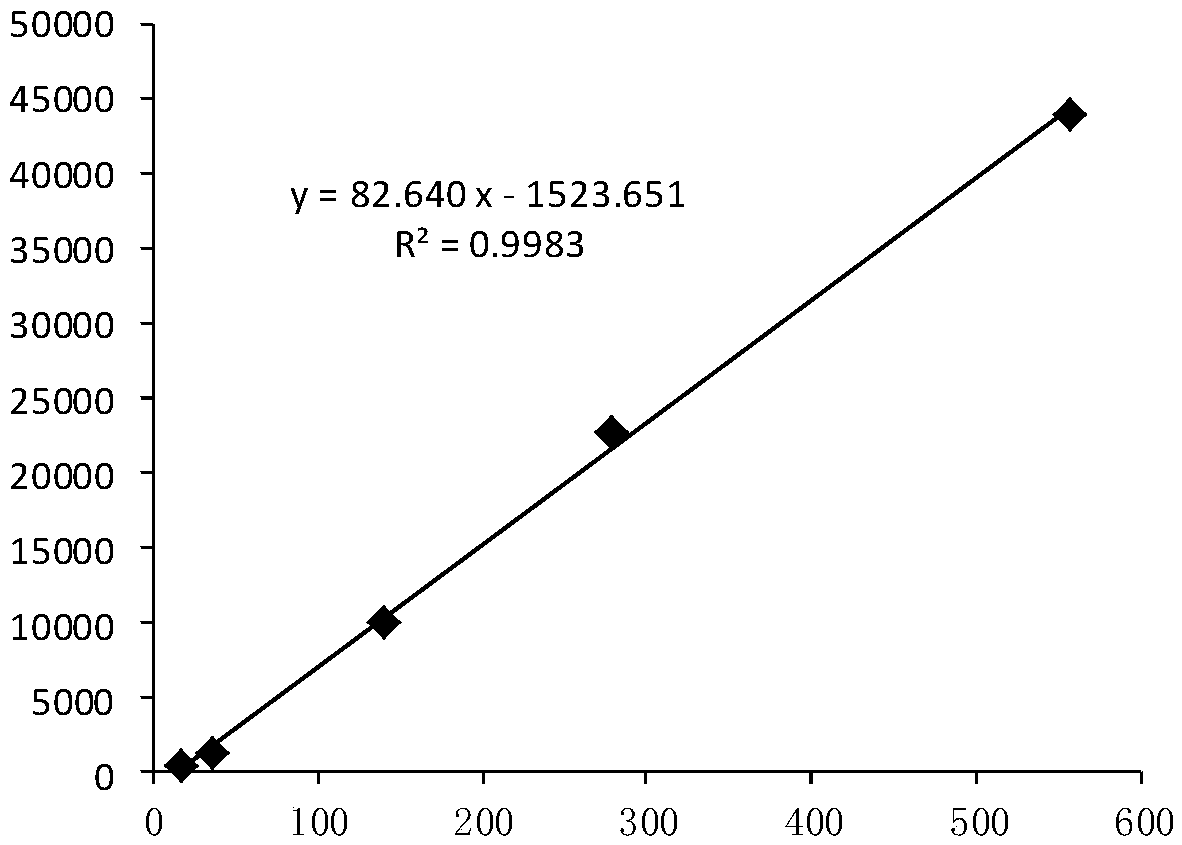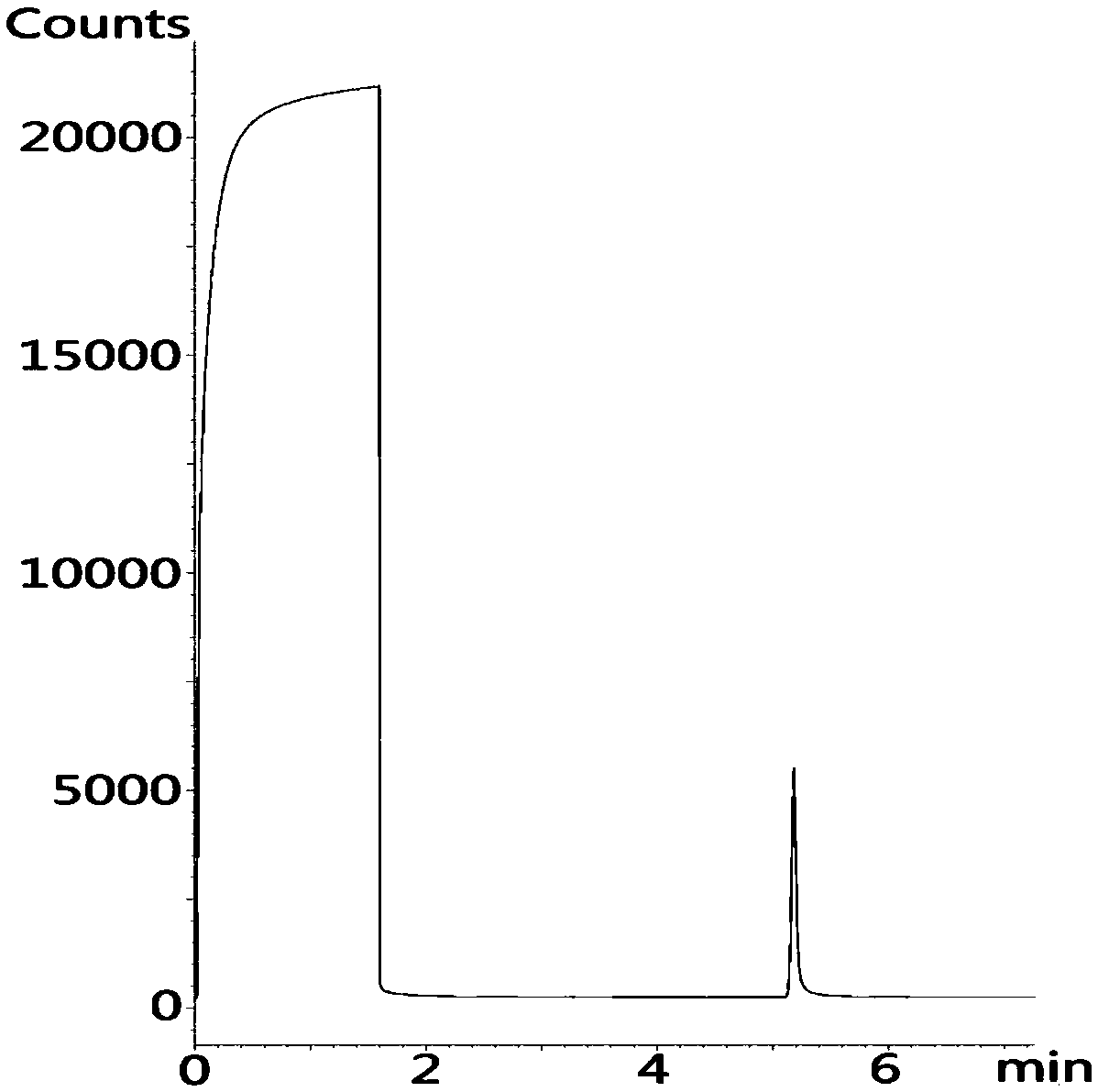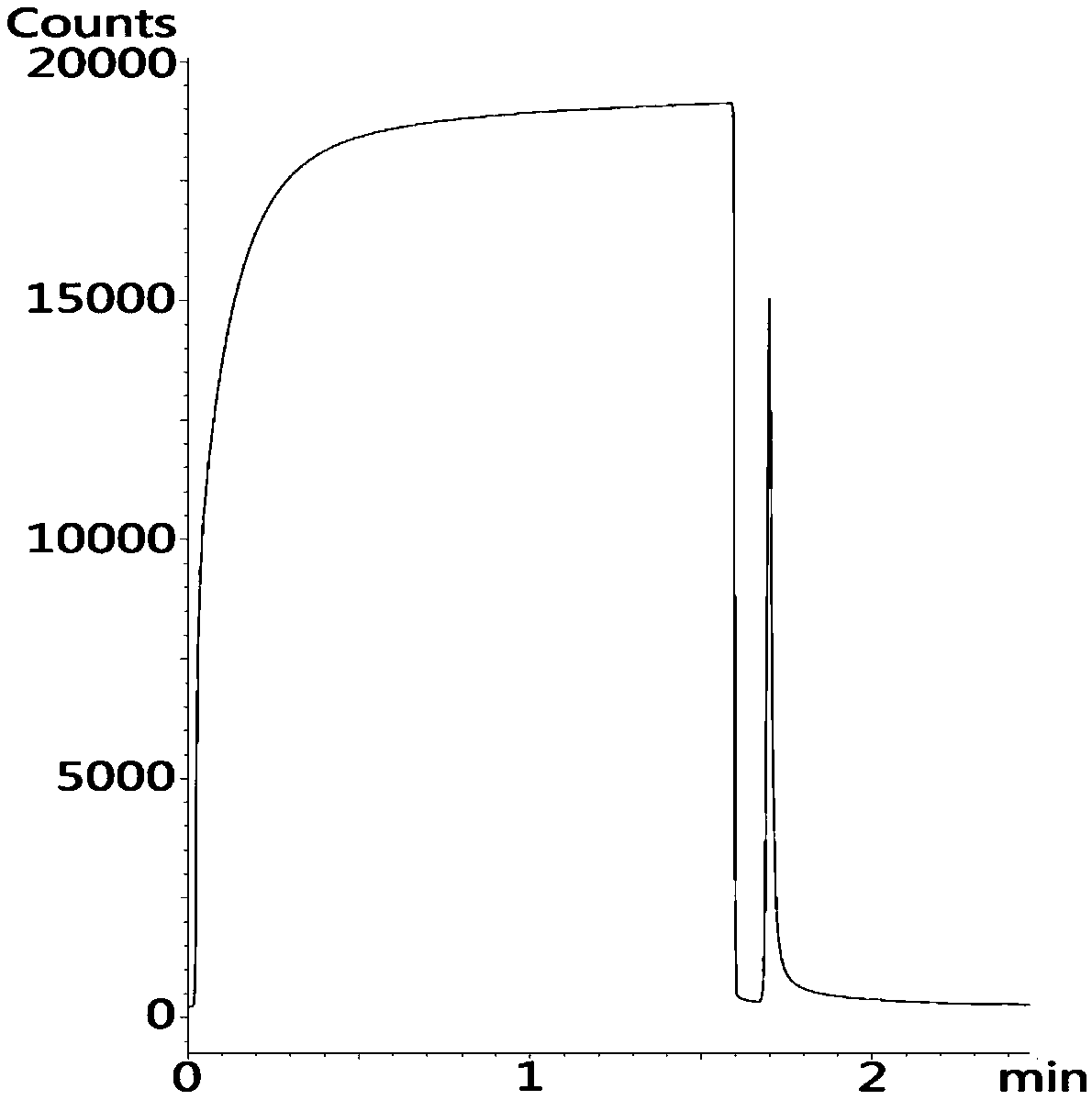GC-AED (gas chromatography-atomic emission detector) irrelevant calibration curve (CIC) method for quantitatively determining DNTF content
A calibration curve and quantitative determination technology, applied in measuring devices, instruments, scientific instruments, etc., can solve problems such as hidden safety hazards, high sensitivity, flammability, etc., and achieve high accuracy, good separation, and good peak shape.
- Summary
- Abstract
- Description
- Claims
- Application Information
AI Technical Summary
Problems solved by technology
Method used
Image
Examples
Embodiment 1
[0022] The experimental apparatus of this embodiment:
[0023] Agilent 7890A gas chromatograph, autosampler with 16 sample turrets, JAS AEDⅡPlus multi-element detector, JAS multi-element detector software.
[0024] The test condition of this embodiment:
[0025] Chromatographic column: HP-5 chromatographic column;
[0026] Injection port temperature: 200°C;
[0027] Column temperature: 170°C;
[0028] Split ratio: 20:1;
[0029] Injection volume: 0.5uL;
[0030] Flow rate: 2mL / min;
[0031] AED detector transfer line temperature: 220°C;
[0032] AED detector chamber temperature: 250°C;
[0033] C element detection wavelength: C193nm;
[0034] The reagent gas is O 2 , H 2 ;
[0035] The supplementary gas He gas pressure is 200KPa.
[0036] Use acetone as solvent to prepare 740ug / mL DNTF solution; injection volume: 0.5uL; after the instrument stabilizes, inject 6 times to obtain the average value of the peak area, and obtain the C element of DNTF according to the CIC...
Embodiment 2
[0040] The experimental apparatus and test conditions used in this embodiment are the same as in Example 1.
[0041] The sample tested in this embodiment is a certain mixed explosive, and the formula of this explosive is 2.4.6-trinitrotoluene (TNT), DNTF and benzotrifuran nitrogen oxide compound (BTF), wherein the routine test method of DNTF needs Liquid chromatography external standard method of DNTF standard substance. Through the method established in this study, benzoic acid, which is not itself and non-energetic material, can be used as a standard sample to determine the content of DNTF in the explosive formula.
[0042] The pretreatment steps of the sample are as follows: Weigh 0.1g of the sample into a clean and dry 50mL volumetric flask, add 30mL of acetone, plug the bottle, sonicate until completely dissolved, dilute to the mark with acetone, and mix well. After filtering with an organic solvent filter, the samples were injected for analysis. The C element chromatog...
PUM
 Login to View More
Login to View More Abstract
Description
Claims
Application Information
 Login to View More
Login to View More - R&D
- Intellectual Property
- Life Sciences
- Materials
- Tech Scout
- Unparalleled Data Quality
- Higher Quality Content
- 60% Fewer Hallucinations
Browse by: Latest US Patents, China's latest patents, Technical Efficacy Thesaurus, Application Domain, Technology Topic, Popular Technical Reports.
© 2025 PatSnap. All rights reserved.Legal|Privacy policy|Modern Slavery Act Transparency Statement|Sitemap|About US| Contact US: help@patsnap.com



